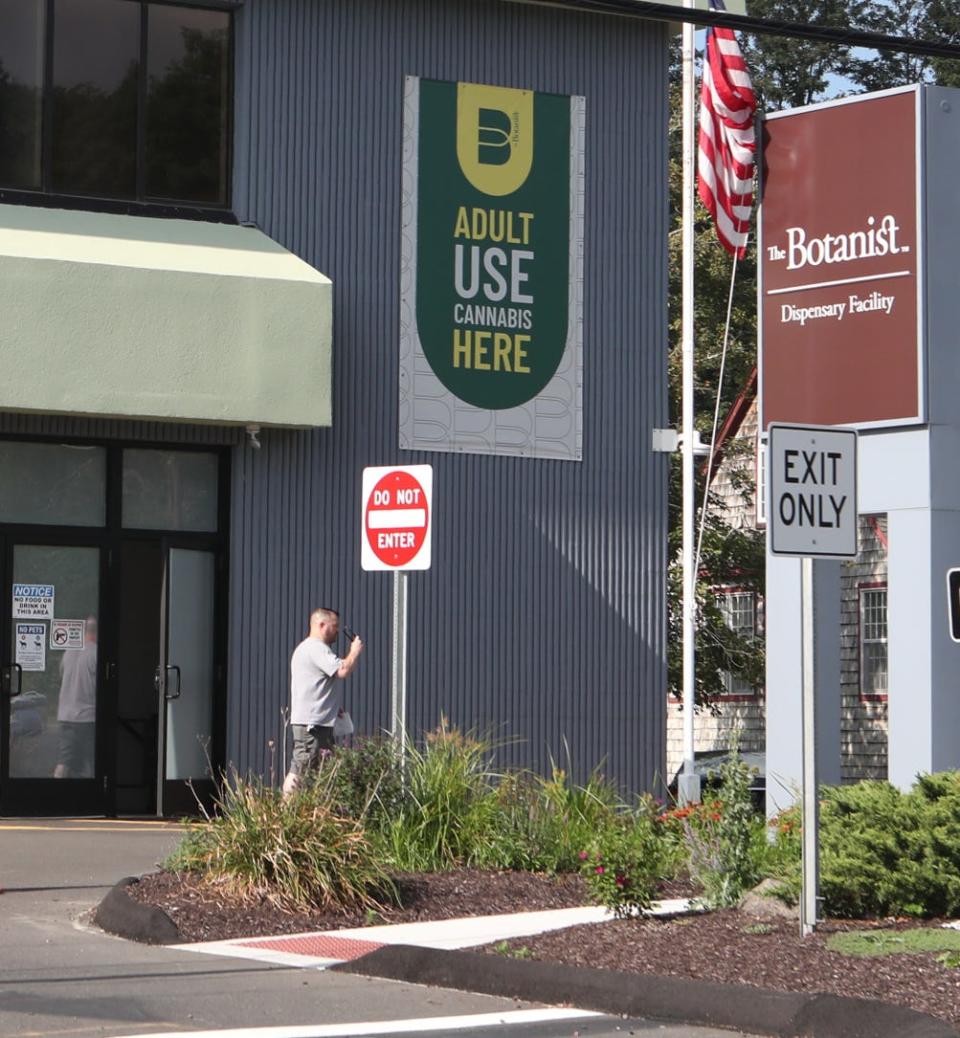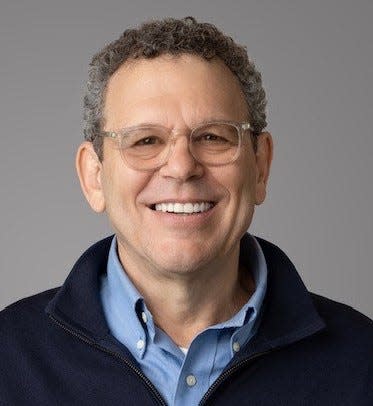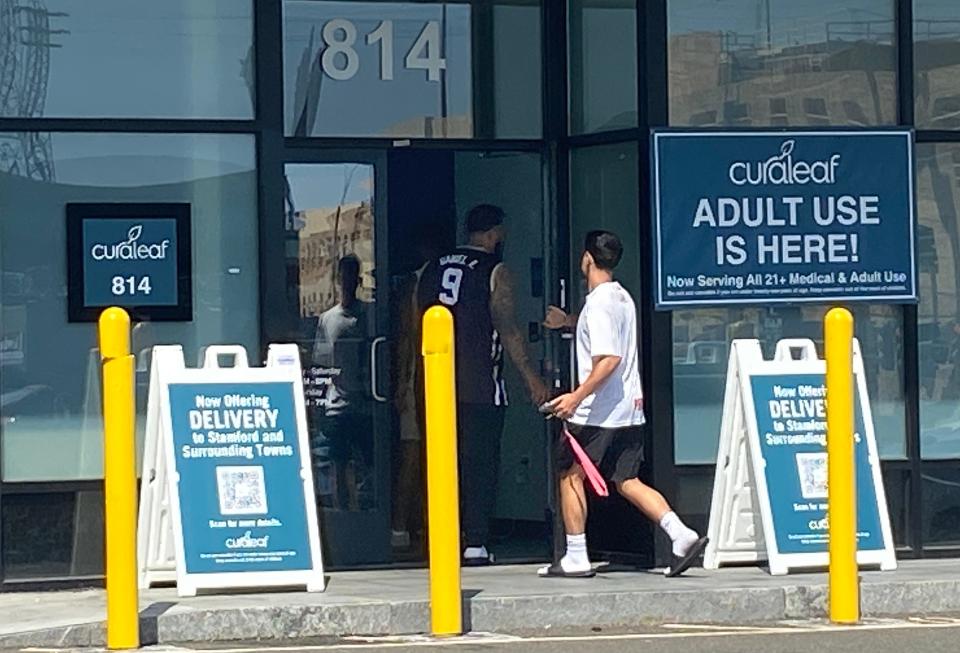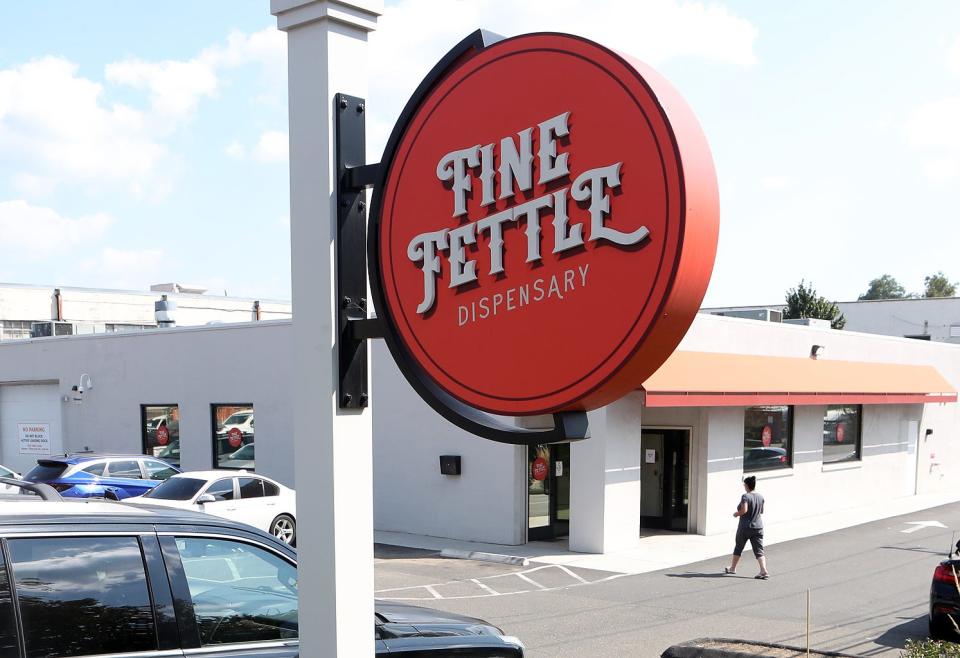Connecticut adult-use pot shops draw New Yorkers as NY rollout limps along
Intoxicants for decades have driven traffic to the New York-Connecticut border.
During my teenage years in Connecticut, we'd drive west in the early 1970s on Route 44 to Millerton in Dutchess County to buy cases of Budweiser and jugs of Boone's Farm. At the time, the New York drinking age was 18 while Connecticut's remained at 21.
Until 2012, Connecticut residents in need of a bottle of bourbon or a six-pack on Sunday would cross the state line to New York because Connecticut’s Blue Laws prohibited alcohol sales on the Christian Sabbath.
Now the situation has flipped following the opening of adult-use recreational cannabis shops in Fairfield County in January 2023. It came as New York’s rollout of recreational weed remains snarled in the state court system and pending approval of statewide regulations. But Connecticut this year has quietly built its adult recreational market using a model rejected by New York.

Among those New Yorkers stopping at The Botanist dispensary in Danbury, just a mile from the Putnam County line in Southeast, is Andrew Kaye, chief commercial officer of Sweet Leaf Madison Capital, which provides funding for marijuana start-ups.
He said Connecticut has avoided the pitfalls suffered by New York.
“Connecticut has been so quiet, with typical Yankee modesty, in a low-key but reasonably effective way,” said Kaye, a Hartsdale native who is looking forward to his 50th Woodlands High School reunion in November. “In New York, you still need to call your friend, Bud, who shows up at your door with an illegal delivery.”
The Botanist has drawn a slew of New York customers, said Bryan Murray, the executive vice-president of government relations and communications at Acreage Holdings, the publicly traded company that owns the dispensary and many more in eight states across the U.S.
"There are a lot of people who come from New York to Danbury to enjoy safe, regulated cannabis," Murray said. "There have been fits and starts from New York's Office of Cannabis Management and a lack of leadership from Gov. Hochul. New York isn't getting the tax revenue that it wants to reinvest in the communities most harmed by prohibition."
The Hochul administration blames the corporate cannabis industry for the delays.
“New York State’s efforts to create the most equitable adult-use cannabis market in the nation are being delayed by litigation backed by large cannabis corporations seeking to increase their profits," said Aaron Ghitelman, spokesman for the state Office of Cannabis Management. "Despite their efforts, we have already provided licenses to 23 dispensaries in the state and in addition, Cannabis Growers Showcases across the state have a combined estimated 1250+ selling days remaining this year. We will continue working to ensure that small, local businesses are able to compete and thrive."
Connecticut has combined a social equity program that’s less strict than New York’s while also allowing the state’s medical marijuana retail outlets to add recreational adult-use weed to its menu.
To qualify for a social-equity license in Connecticut, applicants were not required to have a conviction on their record as they do in New York. In Connecticut those applicants needed to live in areas with historically high crime and poverty rates, said Kaitlyn Krasselt, a spokeswoman at the state Department of Consumer Protection.
Connecticut municipalities have the right to ban dispensaries from their municipalities. The border towns of Ridgefield and Greenwich on the Westchester border have barred them from opening, while Danbury opted to embrace weed dispensaries on its border with the town of Southeast in Putnam County.
New York board to vote on long-awaited marijuana regulations
New Yorkers will learn more on Tuesday about the timetable for adult-use dispensaries for all applicants, including medical marijuana dispensaries, when the New York Cannabis Control Board votes on its long-awaited regulations, said Trivette Knowles, a spokesman for the state Office of Cannabis Management.

“New York chose to focus solely on social equity for adult-use dispensaries, but did it without a robust market,” said Kaye. “New York has done a decent job on cultivation and processing, but the state still have 300,000 pounds of unsold cannabis from 2022.”
A chunk of the sales tax revenues that New York policymakers hoped would flow to the state’s coffers from the sale of adult-use weed now flows to the Nutmeg state and other border states with adult-use dispensaries.
New Yorkers looking for regulated, tested cannabis have the options of traveling to the neighboring states of Connecticut, New Jersey, Vermont, and Massachusetts or finding one of the nine dispensaries located in New York City.
There's also the hundreds of New York City shops that sell weed without state authorization, part of the untaxed black market that still operates.
You can see the allure for New Yorkers to The Botanist, a hybrid medical-adult use cannabis outlet in a former bank building a mile from the Putnam County line in Danbury. It’s located in a standalone building east of the shopping center with Trader Joe’s on Mill Plain Road, just off Exit 2 on Interstate 84.
On a Saturday afternoon in late August, 11 of 27 cars in the parking lot had New York license plates.
Other nearby Connecticut adult-use dispensaries are attracting New Yorkers as well.
On Wednesday, one New Yorker arrived in a chauffeured limosine at the Curaleaf dispensary on East Main Street in Stamford, located in a shopping plaza between Dollar General and Bubbakoo’s Burritos. It's a 12-minute drive east from the state line in Port Chester.
That same afternoon, New Yorkers stopped by the Fine Fettle Dispensary, on the edge of a commercial area further north in Stamford, with 3 of 11 cars having New York license plates.
The Connecticut marijuana legalization edge
A look back over the short history of marijuana legalization shows how Connecticut by some metrics has kept ahead of New York. Connecticut opened its first medical marijuana dispensary in 2014, two years before New York’s medical dispensaries opened for business.
Connecticut’s first adult-use dispensary opened on January 10 of this year, which was nine days before New York’s first adult-use outlet opened.

Today, Connecticut has 18 adult-use dispensaries with a population of 3.6 million residents. New York has 29 adult-use dispensaries in a state with 20 million residents, with 9 adult-use outlets in New York City and none in the Lower Hudson Valley.
Among the 18 adult-use dispensaries in Connecticut, four qualified through the state’s social-equity program while 14 piggy-backed on existed medical marijuana outlets, such as the one off I-84 in Danbury.
The companies that operate New York's medical marijuana market, including several large publically traded companies that operate in several states, say that keeping them from the adult-use market has encouraged the blossoming of the illicit market in New York City, with estimates of at least 1,000 shops selling unregulated weed.
A recent study by the Coalition for Access to Regulated & Safe Cannabis reported that New York expects to receive up to $56 million in tax revenues from cannabis sales during the first year of legal adult-use sales.
That pales in relation to other states' tax receipts during the first-year rollout of their adult-use market. California, for example, brought in $1 billion in sales taxes while Illinois and Washington state both received more than $500 million. At least New York plans to generate more than Montana, which received $42 million in tax revenue in its first year, the report stated.

Sign up for Wilson's weekly newsletter for insights into his Tax Watch columns.
David McKay Wilson writes about tax issues and government accountability. Follow him on Twitter @davidmckay415 or email him at dwilson3@lohud.com.
This article originally appeared on Rockland/Westchester Journal News: New York pot lovers find regulated adult-use weed at shops near border

